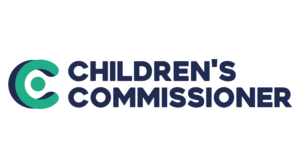Earlier this week the Government committed £80 million as part of its welcome new strategy to tackle violence against women and girls. The investment, which will be available from 2017, aims to radically shift the emphasis from crisis response to early intervention, further reducing rates of domestic violence against women, which despite some very good work over the last five years, remain alarming. It is estimated that there were 1.35 million female victims of domestic abuse in the last year and nearly 450,000 victims of sexual violence.
The impact of violence against children – both boys and girls – is well-documented. Victims will often struggle socially and academically; later in life they are more likely to suffer addiction, indulge in risk-taking behaviour, experience homelessness and imprisonment and even perpetrate violence themselves.
Less talked about is the effect that domestic abuse between adults has on children within the family. Research tells us that children who have witnessed violence in war zones are left emotionally and psychologically damaged by it. Little surprise then that those growing up in homes where domestic violence is common – where adults frequently bully, intimidate or physically abuse one another – are more likely to suffer from mental health and wider social problems.
Worryingly, the impact of domestic abuse on children can continue into adulthood. There is evidence that children exposed to domestic violence are more likely to end up in abusive relationships in later life, whether as perpetrators or victims, and of course, where there is domestic abuse between adults, children are often not just witnesses. According to Dr Barnardo’s, children may be encouraged to take part in bullying or threatening behaviour towards a parent, or even be threatened by one parent as a way of controlling the other. The age at which an individual experiences or witnesses violence or abuse is crucial.
Some local projects are finding ways to bring together health, school, housing providers and others to tackle domestic violence. Operation Encompass, is a programme that runs in several local areas, including Plymouth and Cheshire, and encourages schools to play an integral part in supporting children who are exposed to domestic violence in order to minimise the impact of exposure to abuse. The project runs on the basis that the single most critical factor in how well children cope is the presence of at least one loving and supportive adult. Children with no support and who are isolated, are more negatively affected. School workers are taught how to identify the signs of exposure, and are encouraged to develop nurturing, trusting and ultimately supportive relationships with the child.
Another programme that has had a demonstrable impact is Improving Futures, which has funded a series of different early intervention approaches around the country from 2011. Although designed to tackle a wide range of problems, the project identifies domestic violence as a common characteristic of troubled families, alongside others such as high-stress levels, unemployment, drug and alcohol abuse, and disruptive behaviour in children. Significant success has been reported in reducing anxiety, violence and disruptive behaviour in the 5,700 families or so on the programme, by allocating key workers to work with the whole family to identify and address specific needs, and to build their capacity and capability to manage their own lives.
Violence in the home is a factor in so many crises that vulnerable children experience. Identifying the early signs and responding as early as possible has to be at the heart of protecting children from harm and building resilience.
The challenge is to make sure that the protection from harm caused by domestic violence afforded to hundreds of thousands of children and young people under the last five-year Violence Against Women and Girls Strategy, extends to the millions who are still at risk.
To achieve this over the next four years is ambitious but critical. When I came into this role I identified protecting children from harm as one of my key priorities. I am thankful that in continuing its work to tackle violence against women and girls, the Government is doing the same.




